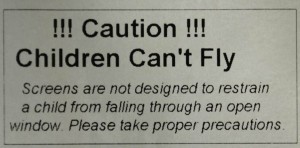- “Do The New School Food Regulations Actually Hinder Scratch-Cooking?” Looks like it [Bettina Elias Siegel]
- What Gloria Romero saw in Sacramento: prison guards lobby for longer sentences, nurses lobby against first aid, but the teachers union was the most untouchable of all [WSJ] Media Matters and the NEA [David Martosko, Daily Caller]
- To earn top ratings under new city evaluation scheme, Denver teachers must press students to “challenge… the dominant culture” and “take social action to change/improve society or work for social justice.” Gee, thanks, Gates Foundation [9NEWS, auto-plays; earlier on ideological tests for educators]
- “School Tells Deaf Boy, ‘Hunter,’ to Change His Name — It’s Too Violent” [Skenazy/Agitator]
- More on pressure for race quotas in school discipline [Casey Cheney, Heartlander, quotes me; earlier here, here, etc.]
- Allegations of mass cheating in, too perfectly, Harvard “Introduction to Congress” course: “I say give the cheaters an A, fail the rest” [Alex Tabarrok] Suspended fraternity sues Miami University for $10 million [Cincinnati Enquirer]
- On coach liability for player injuries [Matt Mitten, Marquette]
- ACLU files novel suit alleging Michigan and its agencies failed legal, constitutional obligation to bring student reading up to grade level [WSJ Law Blog]
Erin Brockovich in Fridley, Minn.
Reader Dave Westheimer writes, regarding a news item that we briefly noted earlier:
Guess who’s coming to the suburb where I live? Erin Brockovich. She’s here and in the news.
Of course she’s not hearing “Fridley’s concerns” — she’s hearing the concerns of novices who’ve never heard of the Texas Sharpshooter Fallacy.
FWIW, “one of the worst Superfund sites in the country” refers to the old FMC plant in the southwest corner of the city by the Mississippi, well away from the closest residential neighborhood and more likely to affect Minneapolis than Fridley, if it affected anything at all. Fridley’s biggest industry is Medtronic’s headquarters. It’s a typical postwar residential suburb, mostly built in the 50s and 60s.
The neighborhood newspaper ran what I thought was a fawning article about her appearance here, written by an intern, along with a separate article about how the intern who wrote the article was so excited to meet her. So much for objectivity.
As the city’s water report (PDF) says, Fridley has never been in violation of the cancer causing agents standards in the Federal Safe Drinking Water Act.
Now if you’ll excuse me, I’m going to pour myself another tall glass of city water.
Upcoming October travel
I’m set to speak in October in Boston, South Carolina, and Oregon. If you want to add on a speaking stop for me in one of these places or someplace nearby, let me know quickly before I buy air tickets. And if you’d like to book me to speak to your group, drop me a line at editor – at – overlawyered – dot – com.
“Federal judge dismisses claims in fatal mountain goat attack”
The judge ruled that “even though the park could have acted more quickly to kill or relocate the goat, its actions are immune from lawsuits under the Federal Tort Claims Act because they involved an exercise of discretion related to public policy.” [Peninsula Daily News, Washington; AP; earlier here and here]
Peter Diamandis interview, Wired
Private space pioneer Peter Diamandis, who founded the X Prize Foundation and cofounded Singularity University, from the Wired July issue, interviewed by Ted Greenwald:
Greenwald: Could anything derail us from this path?
Diamandis: Yes: the risk aversion we’ve developed as a society. Lawyers have ubiquitous power. If someone is always to blame, if every time something goes wrong someone has to be punished, people quickly stop taking risks. Without risks, there can’t be breakthroughs. I got this from Internet law expert Jonathan Zittrain: We’ve gone from a society where if something wasn’t prohibited then it was legal to a society where if something isn’t explicitly permitted it’s illegal. In the early days of aviation, you could do anything you wanted as long as it wasn’t illegal. Now the laws are so extensive that they say, “Show me where it’s allowed.”
Victories for Ted Frank’s Center for Class Action Fairness
Ted’s successful 7th Circuit objection in June in a Sears shareholder class action (Easterbrook: “The only goal of this suit appears to be fees for the plaintiffs’ lawyers”), which raised widespread discussion, is just one in a string of wins for his Center for Class Action Fairness in recent months. In a settlement involving complaints against Classmates.com, the judge agreed with the arguments of CCAF client (and George Mason lawprof) Michael Krauss, rapped class counsel’s knuckles with a $100,000 sanction for discovery tactics that amounted to harassment (see section III-D), and ordered a better deal for class members [PoL] And in yet another noteworthy case: “The Third Circuit Court of Appeals has rejected a settlement of a class action over potentially leaky Volkswagen sunroofs that would have paid the lawyers who negotiated it $9.2 million in fees and the majority of car owners nothing.” [Daniel Fisher/Forbes, Ted at PoL, earlier]
Window warning
Spotted by @thomasabowden:
Under the headline “Warning: Open Window + Gravity = Bad”, Kevin at Lowering the Bar comments: “I assume one of these is required on every window nowadays, or at least those that open.”
P.S. Reader Kim Schratweiser writes:
“We had new windows installed yesterday and I love this warning label:
“I was also pleased to note that this was on a removable sticker on the glass and I don’t have to look at warning labels when the window is open. The old windows had a warning label on the bottom of the upper sash, so when the window was open the label was clearly visible and quite ugly.”
Great moments in financial employment regulation
Thanks to new federal banking and mortgage guidelines with $1-million-a-day penalties for noncompliance, banks are scrambling to fire any employee who has previously been convicted of a crime involving dishonesty. Among those tossed out: a bank employee with seven years’ service who used a slug in a washing machine in 1963, and a 58-year-old customer service representative with a shoplifting conviction forty years ago. A lawyer says thousands of employees have been fired under the new rules. [Des Moines Register/USA Today via ABA Journal]
Guestblogger thanks
Thanks to James Maxeiner (University of Baltimore Law) and Gerald Russello (University Bookman) for their excellent guestblogging during my absence. And if you’re interested in trying your hand at it, there may be a couple of additional openings this fall: email editor – at – overlawyered – dot – com.
Clint Eastwood: the long ramp to the empty chair
At Cato at Liberty, I write about how the Hollywood great’s experiences as a small businessman in California — in particular his encounters with abusive litigation and with the lawyers and politicians who decline to do anything about it — might shed some light on his much-talked-about speech last night before the Republican National Convention.
P.S. My 2008 post on lawyers who become presidents. Reason on Eastwood’s libertarian politics, and not to forget his views on gay marriage (“Just give everybody the chance to have the life they want.”)


